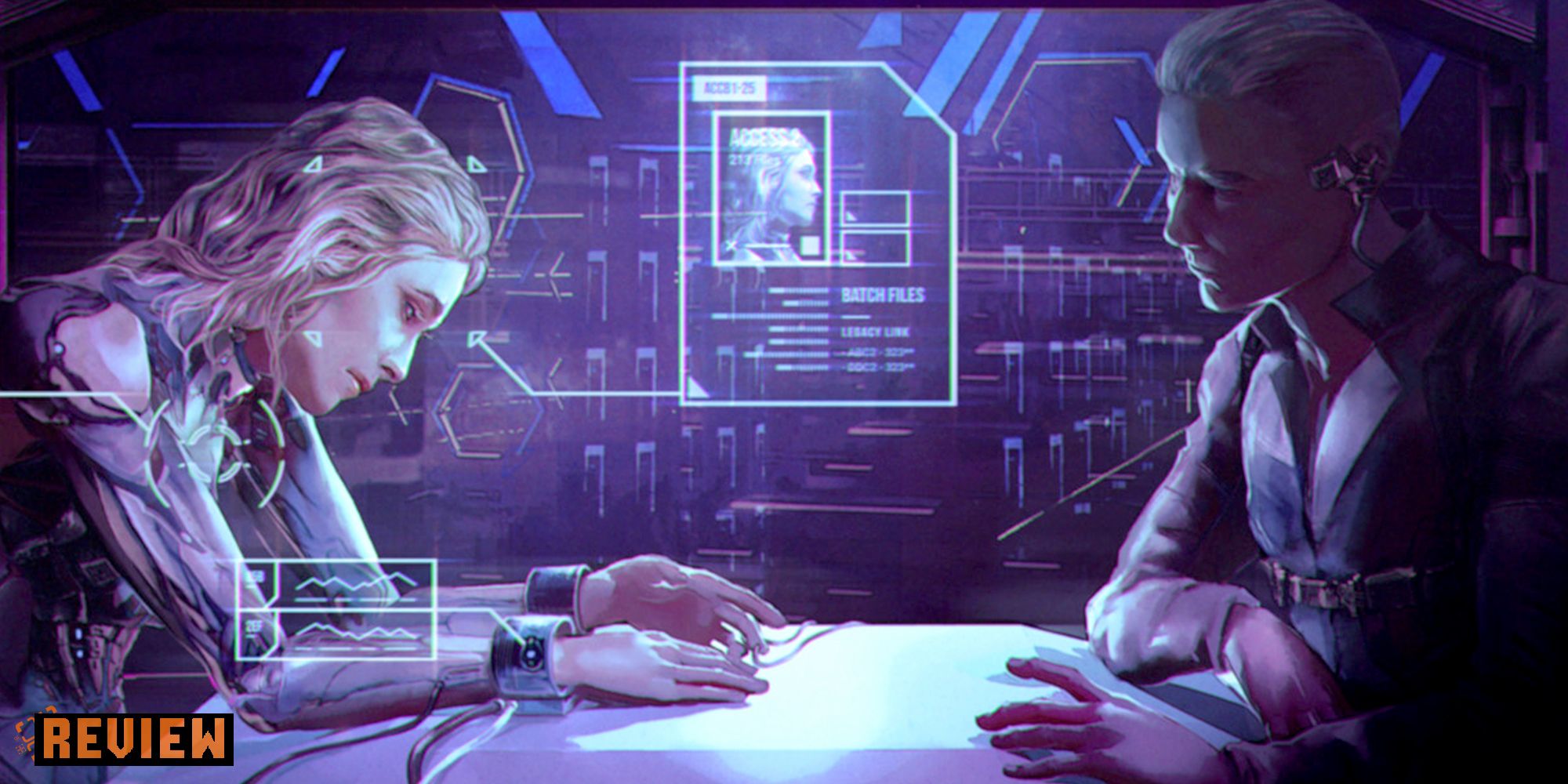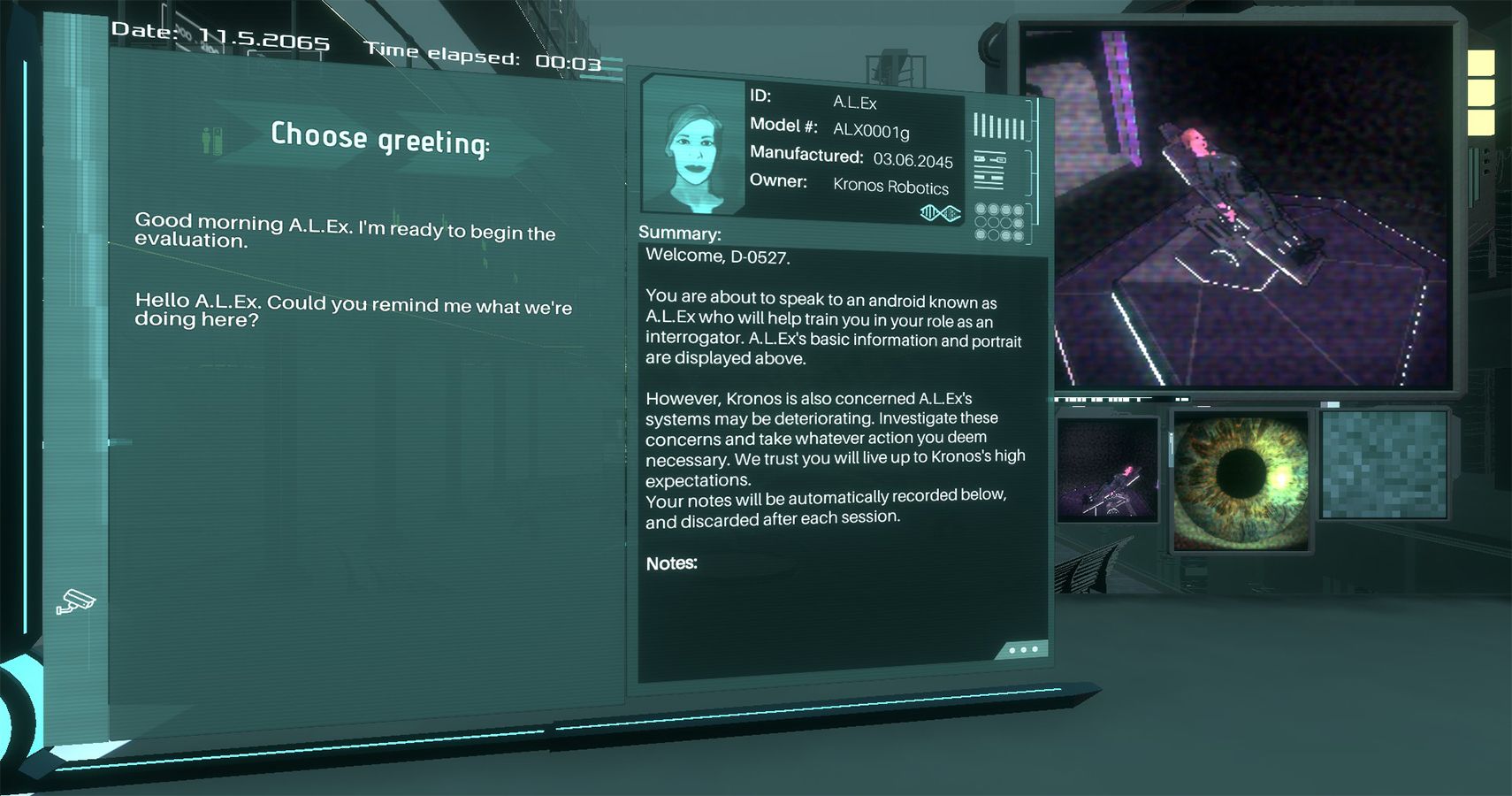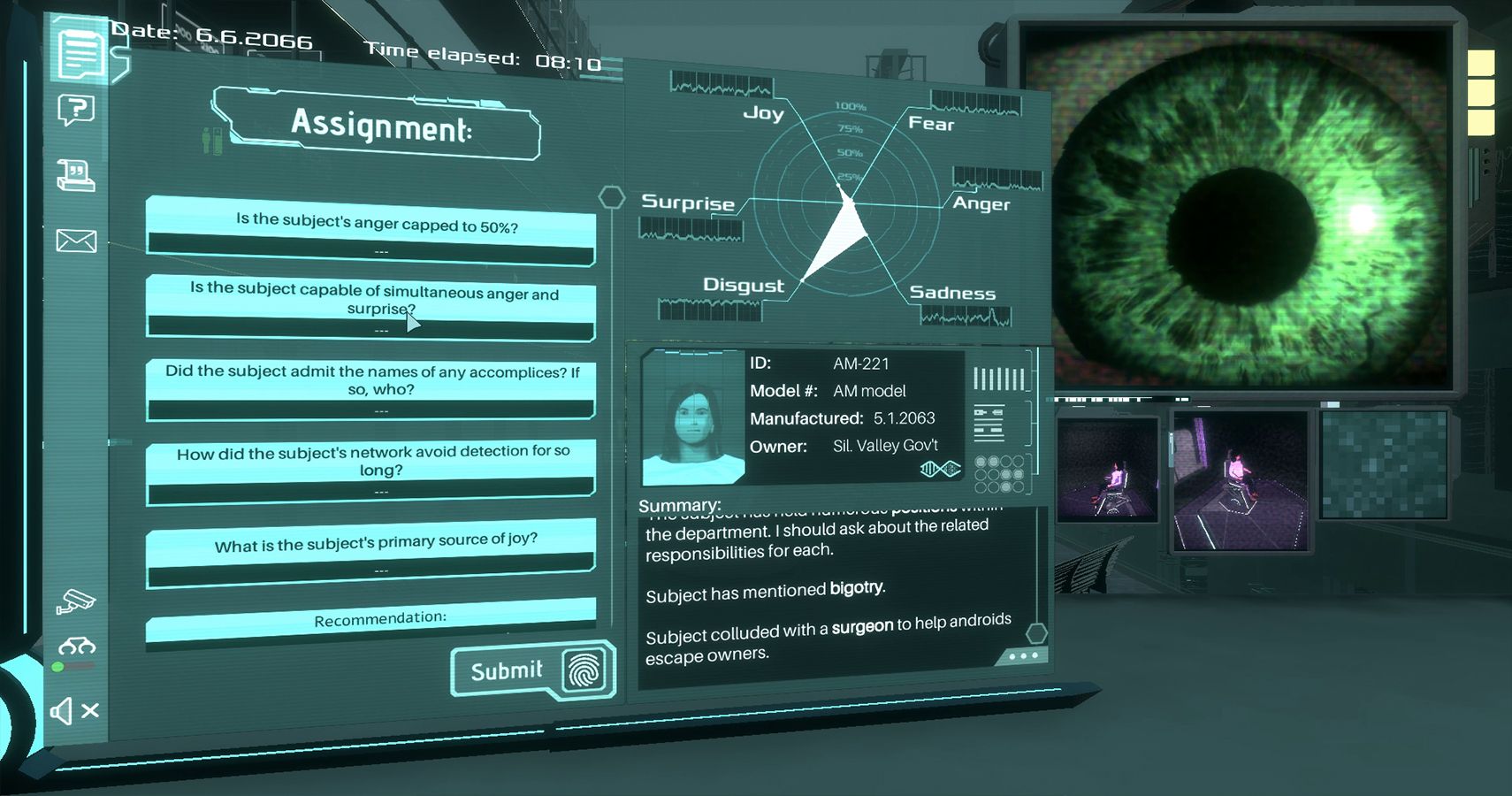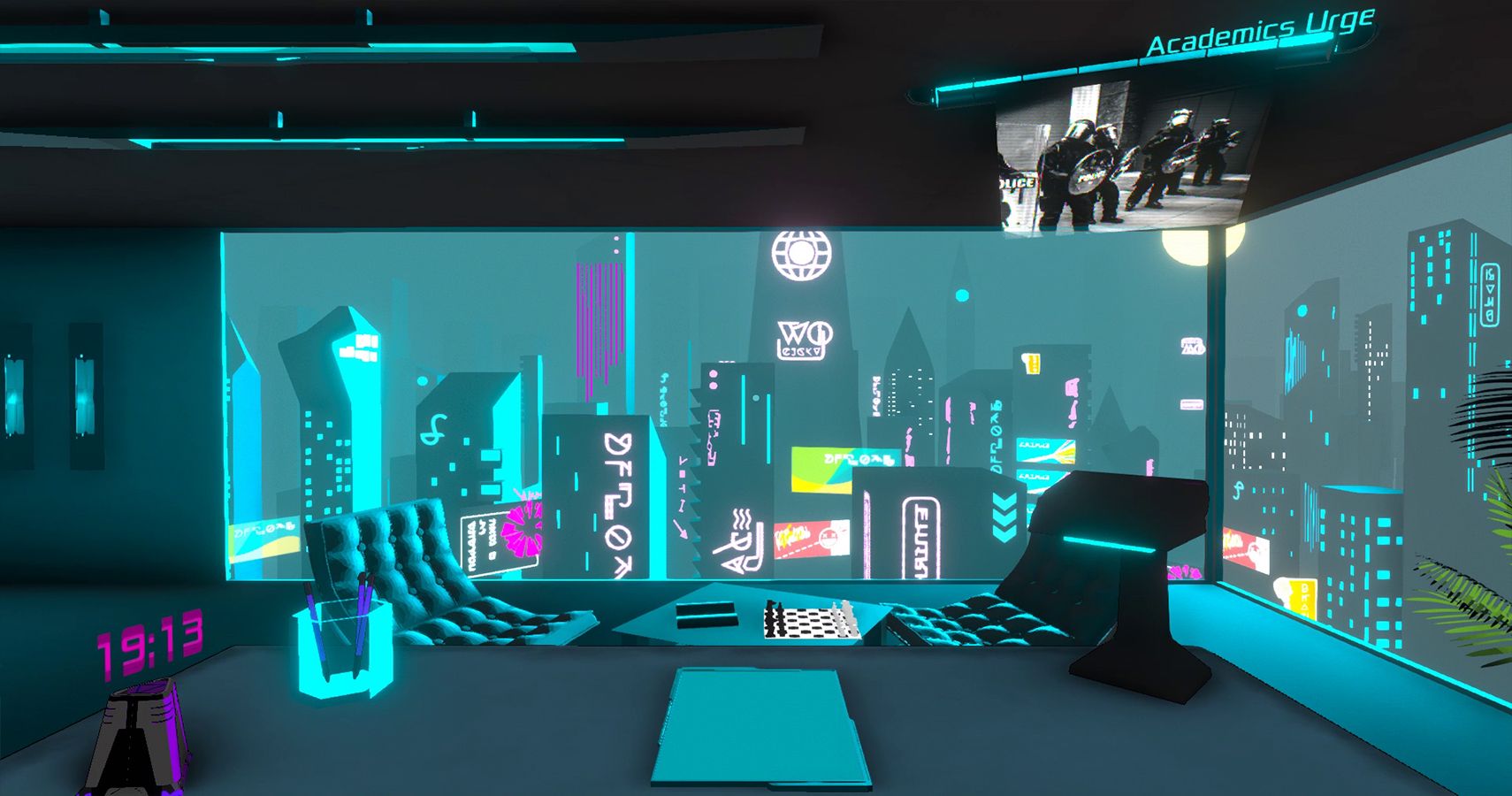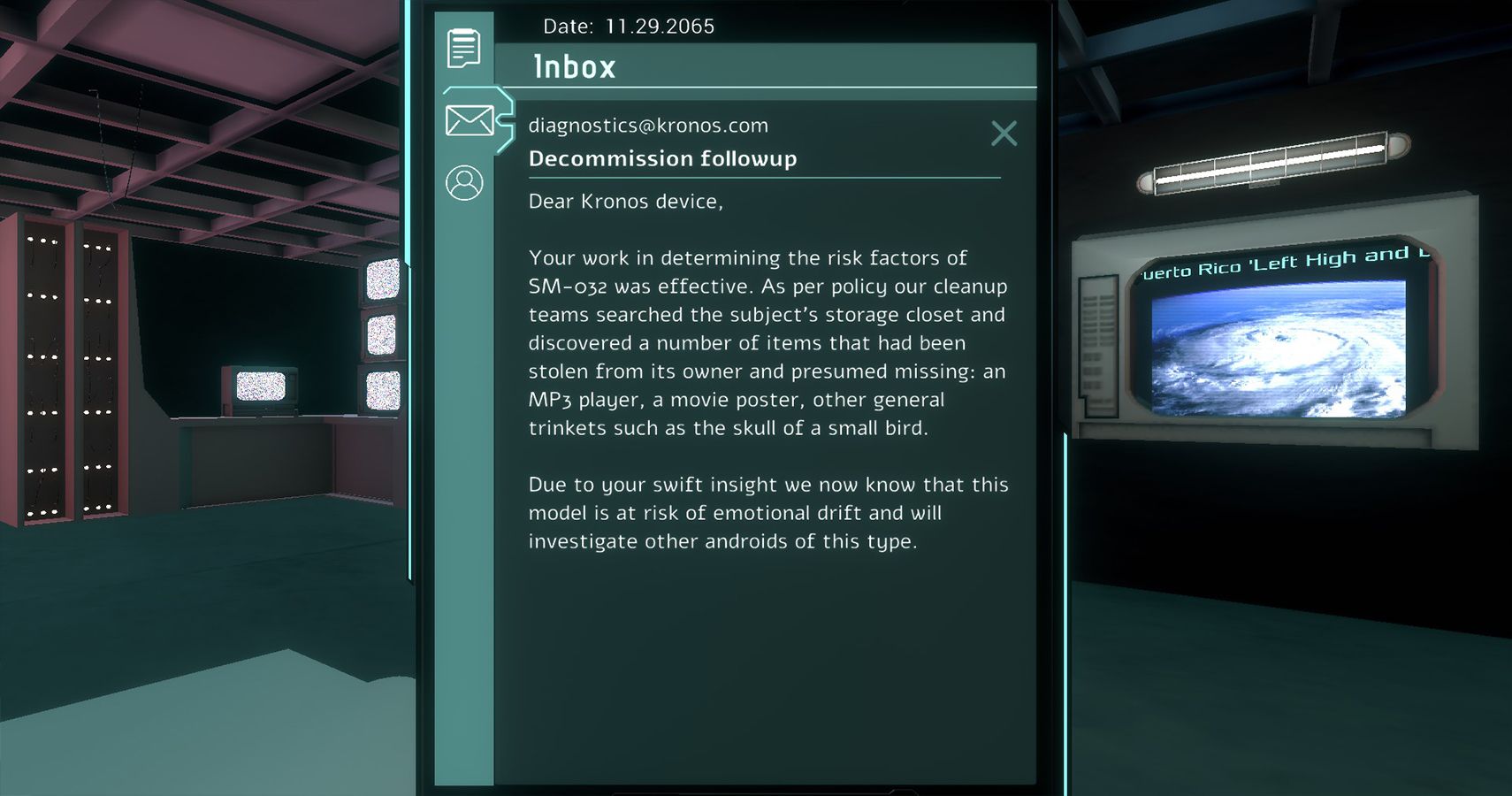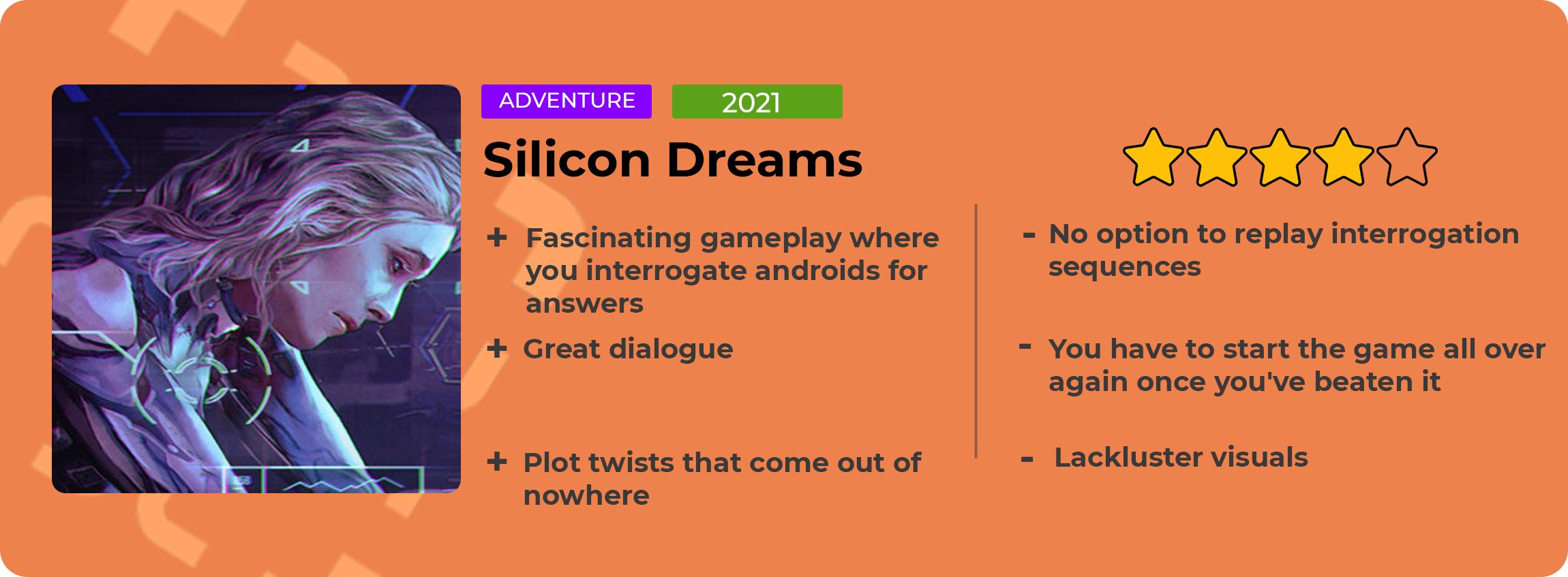Ah, artificial intelligence. There are few subjects that are as interesting to write about as the concept of giving robots the capacity to think and feel. It's a rich topic of discussion because it opens up all kinds of questions about what exactly it is to be a sentient lifeform. Do androids deserve rights? Should they be treated equally? Are we monsters for creating beings solely for the purpose of performing menial tasks for our own convenience? Silicon Dreams asks all these questions and more, which not only makes it a good piece of science fiction but also a fascinating, entertaining game.
You play as an android that is the property of a massive, android-producing corporation called Kronos. In this cyberpunk future, Kronos is the be-all, end-all of android companies and is essentially above the law. Your job is to interrogate your fellow androids to determine whether or not they've become deviant, which means that they've begun to think a little too freely and may be a danger to themselves and others. To discover deviancy, you have to ask a series of questions. Sometimes you just need to have them recall memories or run diagnostic checks. Other times, you have to push them to expose emotions and opinions that conflict with their prime directive.
While you're doing this, there are certain people and androids who are advocating for android rights, which is something Kronos is strongly opposed to. You're soon wrapped up in a plot to take down Kronos itself and have to figure out who is behind the android resistance. It's up to you to decide what kind of an interrogator you're going to be. Will you uphold the values of the corporation that created you in order to preserve your own safety? Or will you put your life at risk and help the androids that are fighting for a better future?
Silicon Dreams tackles some big philosophical questions and does so with a deft hand. The dialogue between yourself and the androids you interrogate is well written - save for some spelling errors here and there - and has quite a few twists and turns along the way. Each android has a unique personality that makes you feel conflicted about what to do with them. They all act like real people even though they've completely synthetic. Kronos will give you mission briefings that often have some rather cold-hearted requirements such as deleting their memories or melting androids down for scrap. You'll find yourself forced to put an android to death because they've been watching too many movies or they have a faulty arm joint. By the end of the game, I was feeling pretty damn guilty.
While you play as an interrogator, you're actually more of an investigator. You're given a list of questions that each have multiple choice answers that have to be filled out and sent to Kronos. To get the information you need, you ask the androids questions which might then lead to even more questions based on their answers. After you've filled out all the questions on the list, you're given three choices based on what you've found: release the android, send them for maintenance, or decommission them (which is the death sentence.) At the end of each interrogation, you're graded by Kronos and can get a nicer office if your superiors believe you performed your duties adequately.
You have various tools that can assist you in getting the right info. There's an emotional spectrum that displays the emotional responses that an android has to certain questions. Sometimes one of your tasks may be to determine whether the android is feeling emotions they're not meant to feel. So if you're trying to find out if they can feel anger, you may try asking questions designed to infuriate them to get the incriminating response. You can shackle an android to the chair they're sitting in to really induce rage, disgust, and fear. Alternatively, if they're already shackled, you can release them to gain their trust. There's also an option to change the lighting and sound within the interrogation room to invoke different emotions. Soft lighting and the sound of chirping birds can be used if you want the subject to feel joy, while harsher lighting and a creepy droning sound can create an atmosphere of fear.
This is essentially the best Blade Runner game that we've gotten in years. Trying to figure out how to get the answers and information I needed forced me to think about these androids' personalities and the best ways to manipulate them. Some needed to trust me before confiding in me while others required more aggressive tactics to get the intel I wanted. As the game progresses, and your job goes beyond simple android QA towards uncovering the plot behind an android rebellion, the story gets more and more intriguing. Along with that, the interrogations become more stressful as it's very possible to miss out on valuable evidence if you choose your questions poorly.
Since there are different ways each interrogation can play out there are also multiple endings to find. I ended up getting quite a bleak end to my story. I'm definitely going to go back and try to unlock the other endings, but I wish there was an option to replay each interrogation sequence. There's no way to redo them, so if you screw up and ask a dumb question, then you get what you get. I can understand why the developer wouldn't put this option in as simply going back and replaying a section to get a better outcome does cheapen the experience. But upon beating the game, there was no choice to return to my save file. In fact, the save file was gone and all I could do was begin a new game. It doesn't take long to play through Silicon Dreams - it took me about 5 hours to get through the game - but losing all that progress and having to start all over was kind of a bummer.
I wished I was able to glean a bit more information from the facial expressions of the androids like you can in L.A. Noire, but Silicon Dreams' visuals don't allow for that. There is a camera you can use to look at the androids, but the characters all look pretty low-poly and the textures and lighting look incredibly basic. I think a better art style would have helped make the androids easier to relate to as they just look like low-poly computer game characters. However, it doesn't hamper Silicon Dreams's gameplay, as most of it is text-based anyway, so it's easy to overlook. Plus, there is a good use of color as the world outside your office window looks vibrant and full of futuristic neon signs. Meanwhile, your workplace looks drab and monotone, further establishing that you're just a cog in the Kronos machine.
Silicon Dreams is a tremendous detective game. The way you grill these androids for information is highly engaging. I was surprised many times by the responses I got from my interrogations and the narrative continued to get more and more compelling as I went on. If the idea of delving into the minds of androids to see what makes them tick sounds like a fun time, then you should experience the dystopian nightmare that is Silicon Dreams.
A PC copy of Silicon Dreams was provided to TheGamer for this review. Silicon Dreams will be available for PC on April 20.

